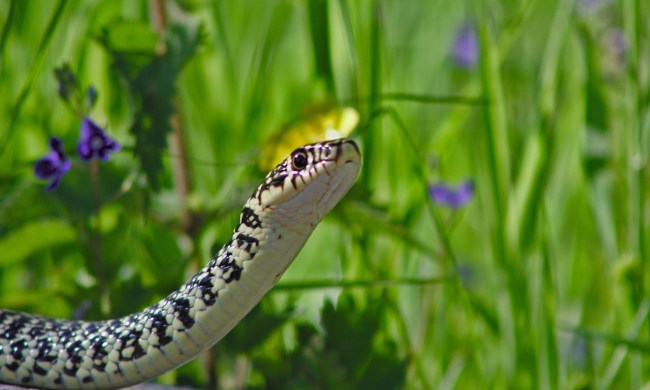While looking for the perfect grass to plant in your yard, you might get confused about the best option. So today, we’ll go over zoysia grass vs. Bermuda grass and see which is the better choice between these two popular types of grass. Keep reading to learn what you need to know about each.
What you should know about zoysia grass
Native to Asia, zoysia grass was introduced to the United States in 1895. This type of grass actively grows during the warm season, starting in early spring. Zoysia grass stays a light to medium green color in its active growing season. When winter comes around, the grass turns brown, but it does this much later in the season than Bermuda grass. Zoysia grass is also one of the first grasses to turn green again once warmer temperatures appear.
Dense growth ideal for lawn games
If you do a lot of outside entertaining or lawn games, you might consider adding this grass to your property. The densely grown plant holds up well under heavy use, so you don’t have bald or muddy spots. Zoysia grass is heat and drought tolerant, and the dense growth pattern means it stands up well under heavy foot traffic. Additionally, its thick growth pattern makes it hard for weeds to penetrate it once it has been established. This natural weed barrier means you’ll spend less time and money preventing and getting rid of weeds.
Low-maintenance grass
Zoysia grass is also a low-maintenance plant that needs very little from you. Since it’s drought and heat tolerant, there’s no need for extra watering during the hot summer months. Zoysia grass might turn a bit brown when it gets hot, but it will green up quickly once it rains again. This grass prefers full sun but can handle partial shade — all of these qualities make it ideal for southern states.
The perfect option for transitional climates
There’s a section in the United States that grass experts call the transition area. This area is too hot for some grasses and too cold for others, so it can be hard to find grass that’s just right for your specific climate needs. However, zoysia grass is the perfect solution. While this grass is ideal for hot climates and handles the south’s heat well, it’s also tolerant of cold temperatures. This makes it perfect for transition areas where other grasses might struggle.
Slow to establish
There are a lot of benefits to growing the zoysia grass variety in your yard, but there are a few other things to consider before taking the leap. For example, this type of grass takes longer to establish than other grasses. The slow-growing quality might not be ideal if you’re looking for a quick fix for that bald patch in your yard where the kids had a slip and slide last summer.
What you should know about Bermuda grass
Bermuda grass is native to tropical and subtropical countries all around the world. It actively grows from late spring through the hot summer months. This grass is very heat and drought tolerant and stays green all season long, but turns brown and goes dormant during the mild winter months. The dormant period also starts earlier and lasts longer than other warm-weather grasses.
Hardy and quick at recuperating
You can start Bermuda grass from seed, unlike other warm-weather grasses. This makes it easier for backyard growers to add this to their yard without the costly expense of sod. In addition, it has a deep root system that allows it to be more resistant to environmental stresses, such as heat and drought. Its durability makes it popular with athletic fields and golf courses in the southern regions. Finally, its ability to withstand heavy use and perk back up once it’s beaten up makes it ideal for those who like to host outdoor parties.
High-maintenance grass
Bermuda grass requires a high-maintenance care schedule and needs lots of nutrients to grow in this hardy way. You’ll have to time out your lawn care schedule to sync up with its demands to ensure this grass stays happy and healthy. This isn’t a plant-and-done type of grass like zoysia grass. It needs full sun and requires good drainage. It’s perfect for southern lawns and can be planted on properties from coast to coast in warmer regions.
Not ideal in transitional climates
This grass type doesn’t hold up in cooler weather at all. Its climate needs hold it back from taking over every lawn in the United States. Bermuda grass is sensitive to the cold temperatures of winter and isn’t ideal in transition zones like zoysia grass.
Quick to establish
It’s aggressive in its growth, which can sometimes make it hard to maintain. You might have a hard time keeping this grass from taking over your gravel driveway or creeping into your garden bed. However, its fast-growing feature makes it ideal if you’re looking to cover a large area quickly. It’s the fastest-growing warm-season grass and spreads above and below the ground.
It seems zoysia grass wins this round. Its low maintenance and ability to grow in transition states make it ideal for many lawns. Let’s not forget its ability to deter weeds naturally! While Bermuda grass is perfect for those hot regions, you might be better off with zoysia grass if you’re looking for something that’s easy to care for.




